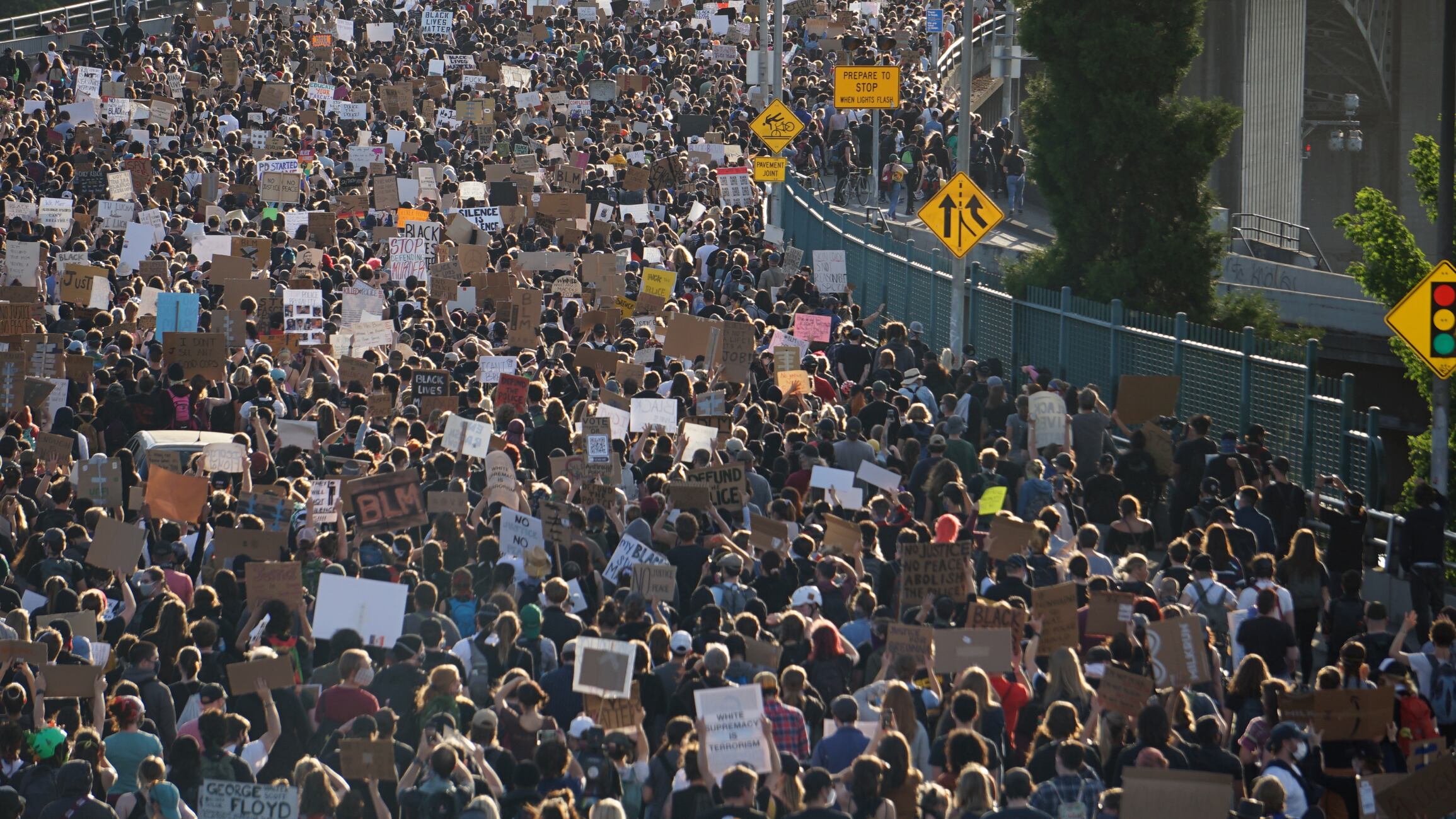Thousands of Portlanders showed up for the sixth consecutive, and mostly peaceful, night Wednesday to protest police killings of black Americans.
Since Saturday, flash-bangs and tear gas have become commonplace at protests in the city. On Wednesday, as in previous nights, an enormous throng marched from the eastside to downtown, this time crossing the Morrison Bridge. What happened when the crowd arrived in the city's downtown core felt different, however: The protesters seemed to argue nearly as much among themselves as they did with the police.
That's in part because the crowds were met with an unusually subdued response from officers, causing protesters to debate among each other what to do next.
Around 8:30 pm, thousands gathered to listen to speeches at Tom McCall Waterfront Park, where Portland State University urban studies professor Lisa Bates listed specific demands to reform the city's criminal justice system, including defunding the Police Bureau and redistributing the money to communities of color.
The group then marched to the chain-link fence that cordons off the Multnomah County Justice Center and the adjacent federal courthouse, for what has become a ritual during the last five days of demonstrations: Protesters and police stood for hours at an impasse in which neither side would budge.
When some protesters threw water bottles at the police around midnight, the cops responded by issuing warnings through a sound truck. In a noticeable change, the officers weren't sporting the gas masks that had become commonplace during the previous nights.
For hours, Portland police stood directly along the fence line that barricades the block surrounding the Justice Center. At various points in the night, protesters expressed anguish and anger at the officers standing just a foot in front of them, albeit on the other side of the fence, calling them pigs, for instance, and demanding they quit their jobs.
But some demonstrators took a different tone: They had polite conversations with police officers on the other side of the fence. At one point, a cop handed a young, white protester his business card through the fence after the two had a chummy conversation, and demonstrators nearby groaned, rolled their eyes and called the protester a "bootlicker."
"Why did you come to an anti-police protest if you want to make friends with the cops?" the protester asked another who was chatting with multiple officers. "We don't talk to the cops!"
Another divide emerged between those who had access to bullhorns, and those who did not. Near 10 pm, some demonstrators talked into microphones and emphasized the importance of protesting peacefully, and of meeting with city leaders, including the police chief, to hash things out.
But many demonstrators in the crowd disagreed with this tactic. They also questioned who the people were who were speaking into megaphones on behalf of the group.
"Who sits down with a white supremacist?" a black protester said. "You will not co-opt our message! That is not our message."
Throughout the night, some protesters chanted the phrase "peaceful protest."
"If you're white, shut the fuck up!" a black woman responded to that chant.
After midnight, the crowd thinned out slowly. Cannabis smoke wafted through the air and protesters sat down in circles in the grass, some laughing and chatting, while others still stood in a crowd along the fence.
After 1 am, someone threw fireworks in a dumpster and set it on fire, according to freelance journalist Sergio Olmos.
Someone threw some fireworks in the dumpster pic.twitter.com/0f0rOFu5eQ
— Sergio Olmos (@MrOlmos) June 4, 2020
But other than the dumpster fire, the sixth night of protests ended without the munitions and chaos of previous nights.

